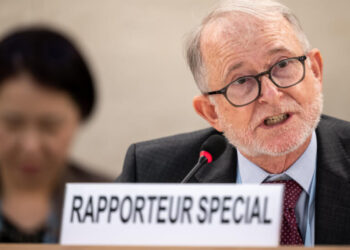Human Lives Human Rights: Toxic and heavy metals discharges are undermining the health and right to safe drinking water of ten million people in Peru and risking the health of future generations.
The United Nations Special Rapporteur on the human rights to safe drinking water and sanitation, Pedro Arrojo-Agudo, made these observations at the end of a two-week visit to the country.
“I attempted to analyze the problems that hinder human rights to water and sanitation beyond the current situation,” the expert said.
These problems are the result of decades of acts and omissions.
Although the Peruvian Constitution recognizes the priority of water for human consumption over any other use in accordance with international human rights standards, however, this provision is often breached.
The city of Cajamarca is a dramatic example. 70% of the population is drinking water previously used by a mining company and the concern is the barriers to accessing the results of independent tests regarding the presence of pollutants.
The traditional approach to water as mere productive resource needs to shift to a sustainable eco-systemic and human rights-based approach.
Rights experts called for the promotion of a integrated water management system to overcome the current dispersion of competences by strengthening municipal and community capacities in the management of water and sanitation services.


















